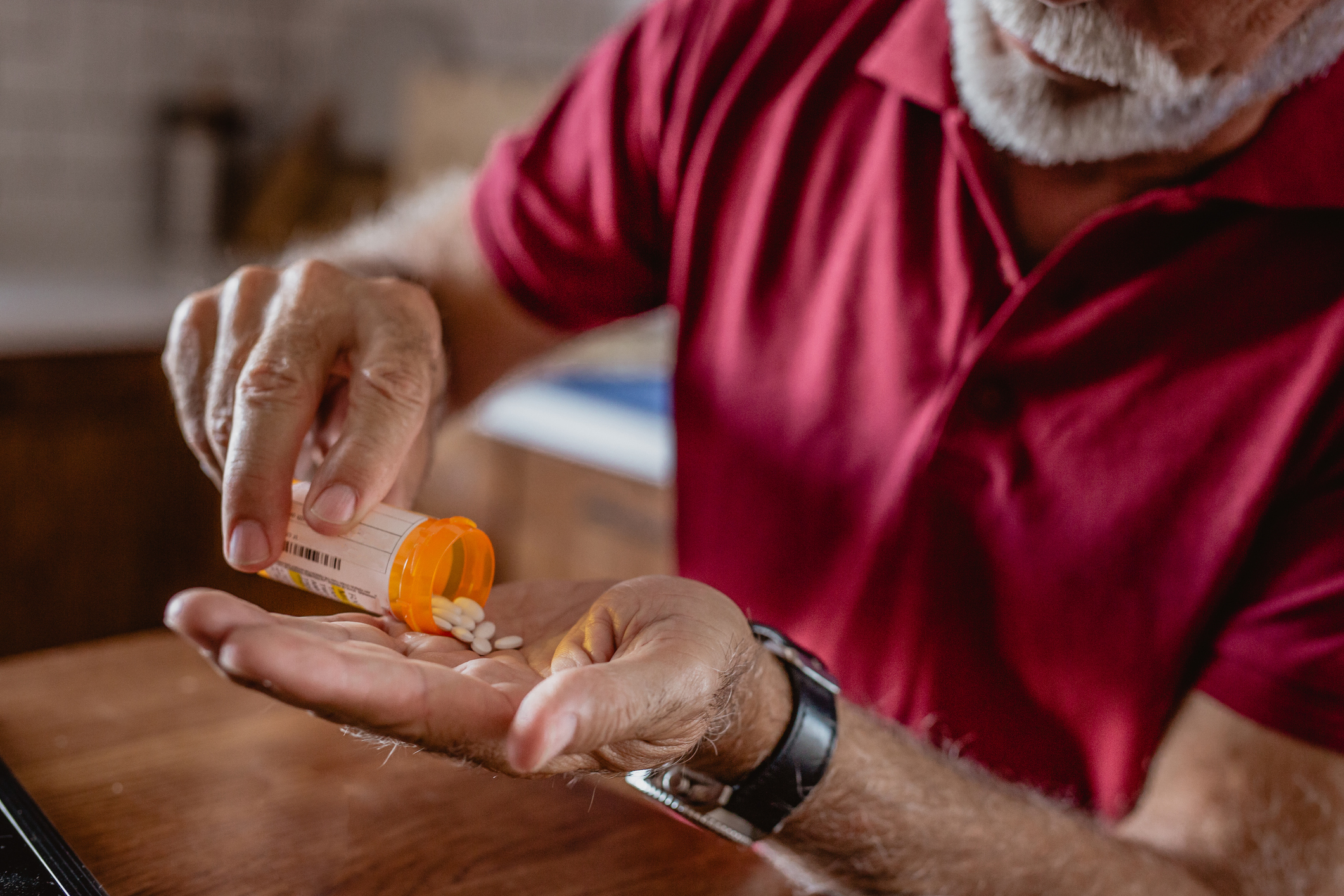Get Easy Health Digest™ in your inbox and don’t miss a thing when you subscribe today. Plus, get the free bonus report, Mother Nature’s Tips, Tricks and Remedies for Cholesterol, Blood Pressure & Blood Sugar as my way of saying welcome to the community!
This could save your life if you take blood thinners

During the last years of her life, my grandmother had to take blood thinners because she was at high risk for stroke.
At the time, this required regular blood work to monitor the medication. She also had to avoid eating too many vegetables rich in vitamin K, like asparagus and broccoli, and give up drinking cranberry juice because of the way it interacted with the medication.
Well, doctors will tell you we’ve come a long way since then.
Unlike the blood thinners my grandmother took, newer medications, known as direct oral anticoagulants (DOACs) don’t require frequent monitoring and have fewer dietary restrictions. They’re also considered to be more targeted and work faster.
But before you believe all the hype, there’s one thing you have to know…
There’s a serious danger associated with these drugs and it’s all due to the doctors themselves.
Prescription errors for blood thinners
As Geoffrey Barnes, M.D., M.Sc., associate professor of cardiology-internal medicine at the University of Michigan Medical School, points out, “While DOACs are lifesaving medications for patients with common thrombotic conditions, they can also cause serious harm when prescribed inappropriately.”
The two most prescribed DOACs are rivaroxaban (brand name Xarelto) and apixaban (brand name Eliquis). These drugs are prescribed to help people suffering from issues like atrial fibrillation, deep vein thrombosis and pulmonary embolism.
However, if they’re used at the wrong dose, they can lead to problems that can be just as deadly, including blood clots and stroke. If you haven’t guessed, potentially fatal errors in prescription dosing happen far too often.
In fact, direct oral anticoagulants can be incorrectly prescribed up to 20 percent of the time — and the people this happens to could be sitting on a ticking time bomb.
A necessary, yet overlooked, safety net
Luckily, there is good news in all of the bad. Research by Dr. Barnes and his team has provided an easy way to prevent these prescription errors.
It’s an online dashboard, developed by the United States Veterans Health Administration in 2016, that was designed specifically to optimize the treatment of patients with DOACs, but was not widely used.
After assessing over 120,000 cases in which patients with atrial fibrillation or venous thromboembolism were treated with DOACs, the researchers saw two lifesaving improvements after adoption of the patient management tool:
- A decline in off-label dosing of approximately eight percent
- A decline in the rate of blood clots and strokes at every hospital that implemented the monitoring tool.
Naturally healthy blood flow
So hopefully, with this research, doctors will start using the dashboard and we can all rest easier if prescribed a blood-thinning medication.
In the meantime, before you ever develop conditions that will require you to sit down with your doctor and discuss starting any of those medications, consider adopting foods and habits that support head to toe healthy blood flow.
Try stretching daily. Even passive stretching, where a partner helps by pulling on your limbs, has been shown to improve blood flow and blood vessel dilation. In another study it improved blood pressure.
Some of the best foods to support blood flow include:
- Turmeric – This golden spice, which has been shown to put out the fires of inflammation, was also found to have the potential to block clotting in a 2019 review.
- Ginger – Just like turmeric, ginger is an anti-inflammatory spice. And because it contains salicylates, the same substances that give aspirin its blood-thinning properties, it may also help keep blood flowing smoothly.
- Garlic – Research in 2018 showed that garlic possesses antithrombotic activity, which means it may help prevent blood clots. And an additional review in 2020 showed it not only offered mild antithrombotic effects, it also helped to lower blood pressure in patients with hypertension.
- Grape seed extract – 2019 research, published in Nutrients, found that grape seed extract offered dual anticoagulant and anti-platelet activity likely due to its rich levels of polyphenols.
- Natto – a Japanese dish made from soybeans led to the discovery of the Japanese secret to healthy circulation. During research, the enzyme nattokinase was isolated and found to dissolve fibrin-containing blood clots.
- Beets – speaking of blood vessel dilation, beets are the best. They help your body produce its natural vasodilator — nitric oxide (NO). NO acts as a signaling molecule telling blood vessels to relax, expand and open wide for normal blood flow and healthy circulation.
Finally, if you are taking a DOAC, such as Xarelto or Eliquis, talk to your doctor about finding out if your dosage is correct using the VA’s online dashboard. It could save your life. Never stop taking a prescribed medication without consulting your doctor.
Editor’s note: There are perfectly safe and natural ways to decrease your risk of blood clots including the 25-cent vitamin, the nutrient that acts as a natural blood thinner and the powerful herb that helps clear plaque. To discover these and other secrets of long-lived hearts, click here for Hushed Up Natural Heart Cures and Common Misconceptions of Popular Heart Treatments!
Sources:
Risk of clots, stroke from incorrect blood thinner dosing reduced using online dashboard — ScienceDaily
Intake of Dietary Salicylates from Herbs and Spices among Adult Polish Omnivores and Vegans — NIH
Dual Anticoagulant/Antiplatelet Activity of Polyphenolic Grape Seeds Extract — NIH














